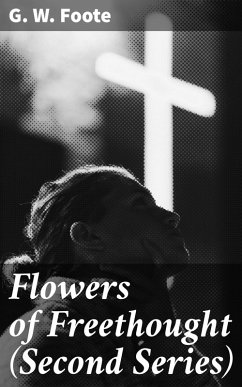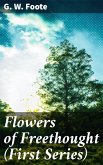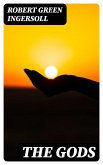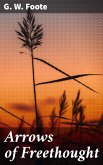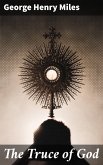In 'Flowers of Freethought (Second Series)' by G. W. Foote, readers are immersed in a collection of thought-provoking essays and articles that challenge traditional religious beliefs and advocate for skepticism and intellectual freedom. The literary style is clear, direct, and persuasive, reflecting the author's commitment to rational inquiry and critical thinking. Set within the context of the late 19th century when religious dogma was being increasingly questioned, this book serves as a manifesto for freethinkers seeking to challenge societal norms and superstitions. Foote's sharp wit and incisive arguments make this work a standout in the realm of skepticism and freethought literature. G. W. Foote, a prominent British freethinker and editor of 'The Freethinker' magazine, was known for his fierce opposition to religious authority and advocacy for secular humanism. His experiences with censorship and legal battles informed his writing, making 'Flowers of Freethought (Second Series)' a testament to his unwavering dedication to the principles of reason and evidence-based thinking. I highly recommend 'Flowers of Freethought (Second Series)' to readers interested in exploring the history of freethought movements and the ongoing battle between religious orthodoxy and secular skepticism. Foote's eloquent prose and uncompromising stance on critical inquiry make this book a must-read for anyone seeking to challenge ingrained beliefs and embrace intellectual independence.
Dieser Download kann aus rechtlichen Gründen nur mit Rechnungsadresse in A, B, BG, CY, CZ, D, DK, EW, E, FIN, F, GR, H, IRL, I, LT, L, LR, M, NL, PL, P, R, S, SLO, SK ausgeliefert werden.

